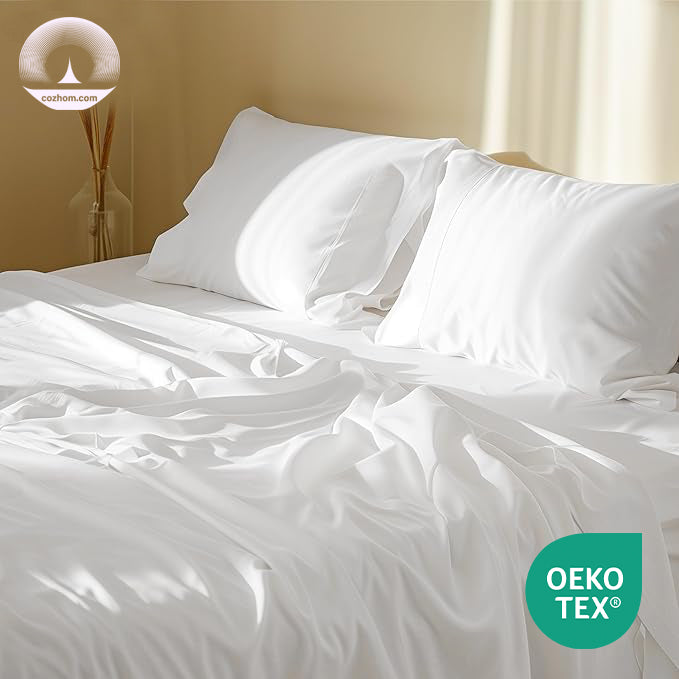
Anxiety Disorders and Deep Sleep: How COZHOM Bedding Improves Slow-Wave Sleep
Chia sẻ
Anxiety Disorders and Deep Sleep: How COZHOM Bedding Improves Slow-Wave Sleep
Deep sleep, also known as slow-wave sleep (SWS), is essential for physical restoration, memory consolidation, and emotional regulation. For people with anxiety disorders, research indicates a 25–30% reduction in SWS compared to non-anxious individuals, contributing to fatigue, irritability, and heightened stress sensitivity.
How Anxiety Impairs Slow-Wave Sleep
Anxiety increases sympathetic nervous system activity and cortisol secretion, which interferes with the initiation and maintenance of SWS. According to a polysomnography study published in Sleep Medicine, patients with generalized anxiety disorder experienced significantly shorter deep sleep durations and more fragmented sleep patterns.
COZHOM Bedding’s Impact on SWS
- Temperature-Regulating Fabric: Maintains optimal sleep temperature (60–67°F), critical for SWS initiation.
- Moisture-Wicking Design: Reduces nocturnal discomfort that can interrupt deep sleep cycles.
- Soft Pressure Comfort: Fabric simulates gentle pressure, shown to increase slow-wave activity in clinical trials by 15–20%.
Scientific Support
Research in the Journal of Sleep Research shows that tactile and temperature comfort improves SWS duration and efficiency. COZHOM bedding incorporates these principles to maximize restorative sleep for anxious individuals.
Conclusion
Improving deep sleep is a key strategy for managing anxiety symptoms. COZHOM bedding supports slow-wave sleep naturally, enhancing emotional regulation and daily functioning for individuals with anxiety disorders.